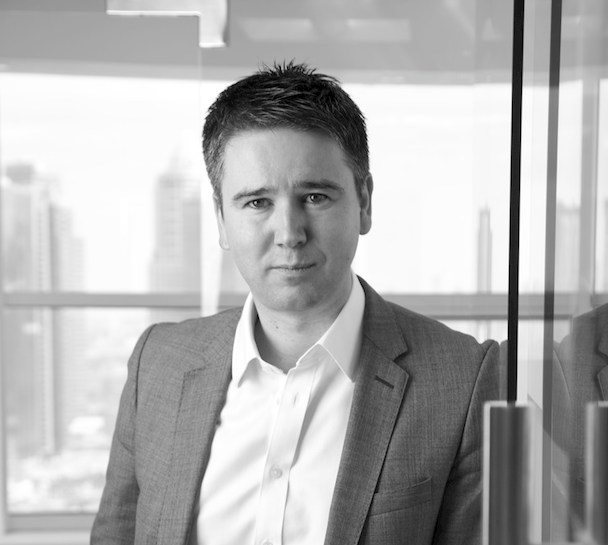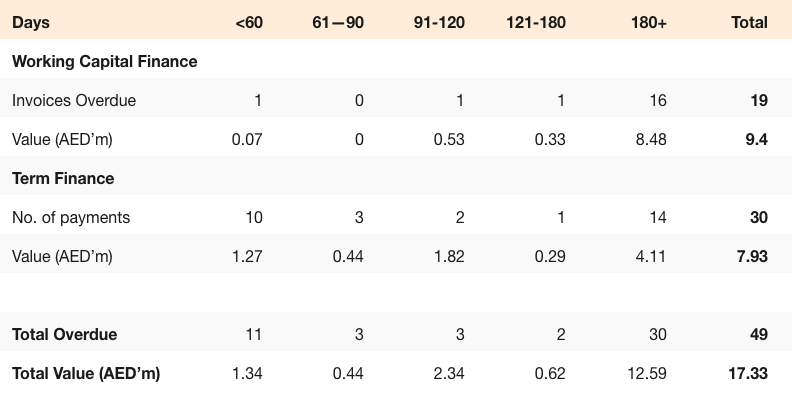Late last year, Beehive made a huge splash in the sea of banking and finance within the UAE, when they emerged as an alternative route to securing finance for SME Business. But who is behind the brand that everyone is talking about?
Craig Moore is the founder and CEO of Beehive, but previously also the Founder and COO of Butterfly Software, a business he set up in the UK which he sold for an undisclosed fee to IBM. He rather modestly puts all of his success down to timing, “Success is often defined by timing. Getting the timing right on bringing an idea to market can really make the difference between a good idea and a huge success. Having first mover advantage is advantageous in any market but the market itself and the potential consumers have to be ready to embrace the opportunity”
Why did you choose Dubai to launch Beehive?
I’ve been a regular visitor to Dubai for many years and I became aware
that SMEs in this region experience the same challenges as those in the UK. SMEs are critical to the growth of this economy yet they can face many hurdles when trying to obtain reasonable credit terms on their finance agreements. I had been actively investing in Peer-to-Peer finance (P2P) whilst researching the concept, and considering the funding gap of $260bn in the region; the UAE seemed the right market to launch the Beehive platform. Businesses are in need of low cost, faster funding and there is certainly an investor appetite to invest in strong, UAE based businesses and make attractive returns.
How has starting a business in Dubai differed to the one that you started in the UK?
In general, business set up within the UK requires less paperwork than in the UAE, so in effect you can set up a business quickly and cost effectively. Setting up Beehive in Dubai was effectively launching a completely new concept into this market. The challenge here is about driving awareness of Beehive and ensuring education and understanding of the peer-to-peer concept.
What is the one piece of standout advice that you have learnt that you would like to impart on others?
A good idea well executed is better than a brilliant idea poorly executed. Having the ideas is the easy part, its ensuring excellent implementation that requires real focus and tenacity to deliver results.
There are times in business when all leaders will make mistakes. How do you recover from these?
Everyone makes mistakes at times, particularly in innovative and pioneering industries. If you’re don’t experience some element of failure at some stage then you’re not exploring and innovating enough. The key difference among successful leaders is that they learn from their mistakes.
What do you believe are the top three things that make a business successful and why?
I tend to refer to the acronym ‘BET’ – Belief, Energy and Teamwork.
Belief – you have to have a belief and a real passion in your idea because that will drive you through the difficult times and ensure you stay true to your idea. Clearly, you have to be flexible in terms of the evolution of the idea but the core belief as to why a problem should be solved should stay firm in your mind.
Energy – You need a relentless energy and drive to achieve.
Actually, if you have a strong enough belief in your idea it provides that natural drive to do everything you can to pursue your goal.
Teamwork – this is absolutely critical. One of the most important jobs of the entrepreneur is to bring together the right team with the right skills to execute the business plan. Effectively you should always aim to hire the best people you can to help deliver your vision.
What has been your biggest challenge to date?
The biggest challenge is overcoming the fear of leaving a corporate job, and the security it affords, and striking out on your own. The initial fear, and the continued desire to succeed need to be positively harnessed to drive you on and keep the belief in your vision. This was my biggest challenge when setting up Butterfly Software, all the way to selling the company to IBM.
You are known to take great pride in your staff and show you value them by encouraging a team atmosphere in the office. Why is this important? What steps do you take?
As I mentioned before, the team is critical element to any successful business. Without a motivated team it won’t be possible to actually execute any of the plans that you have set out.
We try to operate a very open and innovative culture and I think it’s important to ensure that employees feel empowered to do their jobs and that their ideas are valued by senior management. We expect all staff to readily volunteer ideas and creative solutions as to how we can make the business and the workplace better.
Obviously I want enthusiastic and engaged team members but it is a also a responsibility of the leadership team to communicate the business vision, goals and the progress made to ensure that staff stay motivated and feel like they are a part of the journey. Good communication ensures that the team connects with the business and feels part of the journey. Having said that, the start up environment isn’t for everyone. Employees working in a start up often have a certain mindset and thrive on the pace of change and activity. There is a real buzz but a lot of hard work and tenacity.
From a financial perspective, all of our employees get stock options in the business because I really want each employee to feel an intrinsic part of the company and share in the success.
Why are business plans so important?
I fully believe the old mantra of “a vision without a plan is just a dream”. Plans are critical to establish a roadmap. The business plan helps you identify the goals for your business and the strategies and tactics that outline how you will achieve them. Having a business plan will guide your activities and is critical to success. It is also a key way of measuring your progress in achieving your vision.
Who inspires you and why?
There are a number of leaders, statesmen and visionaries that I admire for what they achieved, and in many cases, against the odds. I admire Winston Churchill for the way he was able to galvanise and motivate an entire nation through very dark times to keep believing and not lose hope – that takes a very special force of personality to achieve. In the business world Elon Musk is an inspiring figure as he is constantly challenging conventional thinking to redefine industries and the way we live.
What is the best piece of advice that you have been given?
The best piece of advice that I received quite early on in my life was “Regret the things you don’t do, not the things you do”. I try to follow that advice both professionally and personally because it encourages me to try new things, experiment and innovate.




